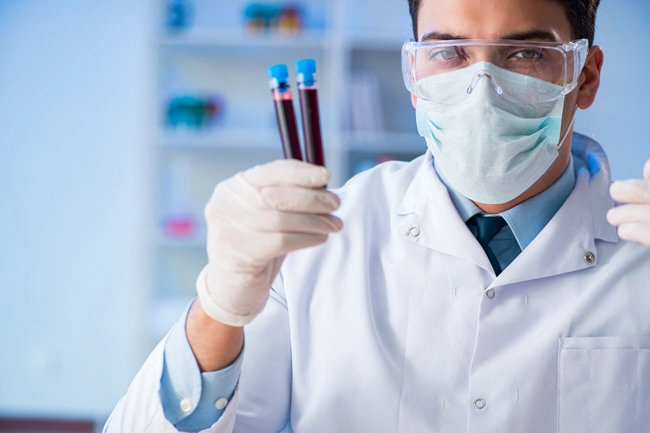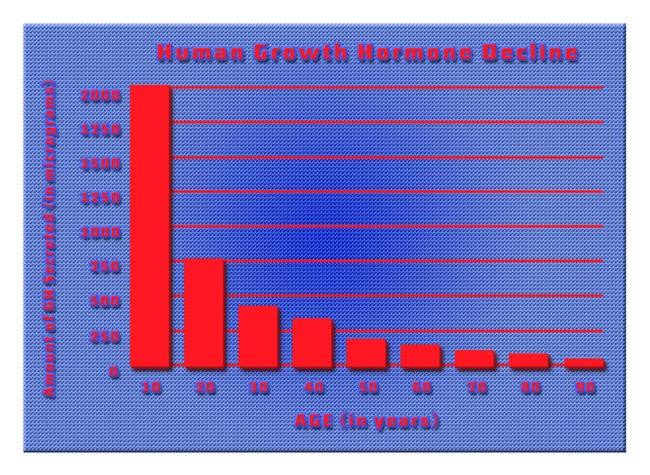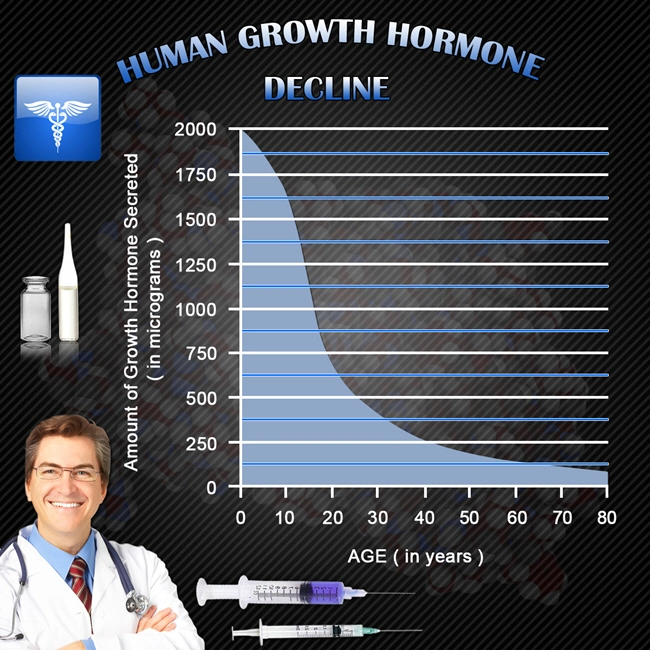
Introduction to Knee Health in Football
Knee injuries are a prevalent concern among American male football players, particularly running backs who are subjected to high-impact and repetitive stress on their knees. The dynamic nature of their role on the field, involving rapid directional changes, accelerations, and tackles, places them at a heightened risk for knee-related injuries. This article delves into the critical aspects of knee health management, focusing on preventive measures, treatment options, and rehabilitation strategies tailored for football running backs.
Understanding Common Knee Injuries
Running backs frequently encounter a variety of knee injuries, with anterior cruciate ligament (ACL) tears and meniscal injuries being among the most common. An ACL tear can occur from a sudden stop or change in direction, often leading to instability and a significant recovery period. Meniscal injuries, on the other hand, may result from twisting movements and can cause pain, swelling, and locking of the knee. Understanding the mechanisms of these injuries is crucial for both prevention and effective treatment.
Preventive Measures for Knee Health
Prevention is paramount in sports medicine, and for football running backs, this involves a multifaceted approach. Strengthening the muscles around the knee, such as the quadriceps, hamstrings, and calves, can provide better support and stability. Incorporating exercises like squats, lunges, and leg presses into regular training regimens can enhance muscle strength and resilience. Additionally, proprioceptive training, which improves balance and joint position sense, can be beneficial. Using proper footwear and knee braces during practice and games can also offer additional protection.
Injury Management and Treatment
When a knee injury does occur, prompt and appropriate treatment is essential to minimize downtime and prevent long-term damage. Initial management often involves the RICE protocol (Rest, Ice, Compression, Elevation) to reduce swelling and pain. Depending on the severity of the injury, further treatment may include physical therapy, medications for pain and inflammation, or surgical intervention. For instance, ACL tears often require reconstructive surgery followed by a rigorous rehabilitation program.
Rehabilitation and Return to Play
Rehabilitation is a critical phase in the recovery process, aiming to restore strength, flexibility, and function to the knee. A tailored rehabilitation program designed by a sports medicine specialist can help running backs safely return to play. This program typically includes progressive exercises to rebuild muscle strength, improve range of motion, and enhance neuromuscular control. It is also important to gradually reintroduce sport-specific activities to ensure the knee can withstand the demands of football without re-injury.
Long-term Knee Health and Career Longevity
Maintaining knee health is not only crucial for immediate performance but also for the long-term career longevity of football running backs. Regular monitoring by sports medicine professionals, adherence to conditioning programs, and ongoing education about injury prevention can contribute to a prolonged and successful career. It is also important for players to listen to their bodies and seek medical attention for any persistent or concerning symptoms.
Conclusion: A Holistic Approach to Knee Health
In conclusion, knee health for American male football running backs requires a comprehensive approach that encompasses prevention, treatment, and rehabilitation. By understanding the common injuries, implementing preventive strategies, and following structured treatment and rehabilitation protocols, running backs can enhance their performance and extend their careers. Sports medicine plays a pivotal role in this process, offering the expertise and support needed to keep these athletes in top condition.
Contact Us Today For A Free Consultation
Dear Patient,
Once you have completing the above contact form, for security purposes and confirmation, please confirm your information by calling us.
Please call now: 1-800-380-5339.
Welcoming You To Our Clinic, Professor Tom Henderson.

- Preventing Ankle Injuries in American Male Volleyball Players: A Comprehensive Guide [Last Updated On: March 14th, 2025] [Originally Added On: March 14th, 2025]
- Rowing and Lower Back Pain: Sports Medicine's Role in Prevention and Treatment [Last Updated On: March 16th, 2025] [Originally Added On: March 16th, 2025]
- Optimizing Recovery for American Male Martial Artists: A Holistic Approach [Last Updated On: March 18th, 2025] [Originally Added On: March 18th, 2025]
- Hamstring Injuries in Sprinters: Diagnosis, Treatment, and Prevention Strategies [Last Updated On: March 18th, 2025] [Originally Added On: March 18th, 2025]
- Surfing Injuries in American Males: Prevention, Treatment, and Performance Enhancement [Last Updated On: March 19th, 2025] [Originally Added On: March 19th, 2025]
- Sports Medicine's Vital Role in Enhancing Triathlete Performance and Health [Last Updated On: March 20th, 2025] [Originally Added On: March 20th, 2025]
- Sports Medicine Revolutionizes Injury Management for American Male Figure Skaters [Last Updated On: March 20th, 2025] [Originally Added On: March 20th, 2025]
- Wrist Injuries in American Male Snowboarders: Epidemiology, Prevention, and Management [Last Updated On: March 20th, 2025] [Originally Added On: March 20th, 2025]
- Sports Medicine's Role in Preventing Overuse Injuries in American Male Climbers [Last Updated On: March 20th, 2025] [Originally Added On: March 20th, 2025]
- Ultimate Frisbee: Knee Health Strategies for American Male Players [Last Updated On: March 21st, 2025] [Originally Added On: March 21st, 2025]
- Sports Medicine Enhances Performance and Health for American Male Polo Players [Last Updated On: March 21st, 2025] [Originally Added On: March 21st, 2025]
- Sports Medicine Enhances Performance and Longevity in American Male Badminton Players [Last Updated On: March 21st, 2025] [Originally Added On: March 21st, 2025]
- Sports Medicine Revolutionizes CrossFit: Enhancing Performance and Health for American Males [Last Updated On: March 22nd, 2025] [Originally Added On: March 22nd, 2025]
- Sports Medicine Benefits for American Male Water Polo Players: Performance, Recovery, Nutrition [Last Updated On: March 22nd, 2025] [Originally Added On: March 22nd, 2025]
- Sports Medicine's Crucial Role in BMX Rider Recovery and Rehabilitation [Last Updated On: March 22nd, 2025] [Originally Added On: March 22nd, 2025]
- Preventing Shoulder Injuries in Lacrosse Goalies: A Sports Medicine Approach [Last Updated On: March 23rd, 2025] [Originally Added On: March 23rd, 2025]
- Sports Medicine's Vital Role in Enhancing Rugby Sevens Performance and Safety [Last Updated On: March 23rd, 2025] [Originally Added On: March 23rd, 2025]
- Preventing Stress Fractures in American Male Runners: Sports Medicine Strategies [Last Updated On: March 23rd, 2025] [Originally Added On: March 23rd, 2025]
- Tendonitis in American Male Tennis Players: Diagnosis, Treatment, and Prevention Strategies [Last Updated On: March 23rd, 2025] [Originally Added On: March 23rd, 2025]
- Rotator Cuff Injuries in American Male Swimmers: Diagnosis, Treatment, and Prevention [Last Updated On: March 24th, 2025] [Originally Added On: March 24th, 2025]
- Optimizing Recovery for Male Wide Receivers: Sports Medicine Strategies [Last Updated On: March 24th, 2025] [Originally Added On: March 24th, 2025]
- Sports Medicine Revolutionizes Training for American Male Handball Athletes [Last Updated On: March 24th, 2025] [Originally Added On: March 24th, 2025]
- Sports Medicine's Role in Enhancing American Male Fencers' Performance and Health [Last Updated On: March 24th, 2025] [Originally Added On: March 24th, 2025]
- Hip Issues in American Male Track Cyclists: Sports Medicine's Role and Innovations [Last Updated On: March 24th, 2025] [Originally Added On: March 24th, 2025]
- Preventing Back Injuries in American Male Rowers: A Holistic Sports Medicine Approach [Last Updated On: March 24th, 2025] [Originally Added On: March 24th, 2025]
- Preventing Shin Splints in American Male Runners: Sports Medicine Strategies [Last Updated On: March 24th, 2025] [Originally Added On: March 24th, 2025]
- Sports Medicine Revolutionizes Injury Management for American Male Swimmers [Last Updated On: March 25th, 2025] [Originally Added On: March 25th, 2025]
- Sports Medicine Benefits for American Male Trampoline Gymnasts: Performance and Health [Last Updated On: March 25th, 2025] [Originally Added On: March 25th, 2025]
- Optimizing Recovery and Performance for American Male Soccer Goalkeepers: A Sports Medicine Approach [Last Updated On: March 25th, 2025] [Originally Added On: March 25th, 2025]
- Sports Medicine Advances Aid Lacrosse Midfielders' Hip Health and Performance [Last Updated On: March 25th, 2025] [Originally Added On: March 25th, 2025]
- Preventing Hamstring Injuries in American Male Soccer Midfielders: Advanced Techniques [Last Updated On: March 25th, 2025] [Originally Added On: March 25th, 2025]
- Sports Medicine's Crucial Role in Recovery for American Male Soccer Defenders [Last Updated On: March 26th, 2025] [Originally Added On: March 26th, 2025]
- Sports Medicine Benefits for American Male Table Tennis Players: Performance and Health [Last Updated On: March 26th, 2025] [Originally Added On: March 26th, 2025]
- Sports Medicine: Enhancing Performance and Health for American Male Track Athletes [Last Updated On: March 26th, 2025] [Originally Added On: March 26th, 2025]
- Sports Medicine's Impact on Recovery Times in American Male Ice Hockey Players [Last Updated On: March 26th, 2025] [Originally Added On: March 26th, 2025]
- Sports Medicine's Impact on Injury Management in American Male Field Hockey [Last Updated On: March 26th, 2025] [Originally Added On: March 26th, 2025]
- Sports Medicine's Role in Enhancing Volleyball Performance and Longevity for American Males [Last Updated On: March 26th, 2025] [Originally Added On: March 26th, 2025]
- Ankle Health Strategies for American Male Beach Volleyball Players [Last Updated On: March 26th, 2025] [Originally Added On: March 26th, 2025]
- Sports Medicine's Vital Role in Enhancing Rugby Forwards' Health and Performance [Last Updated On: March 27th, 2025] [Originally Added On: March 27th, 2025]
- Sports Medicine Revolutionizes Training for American Male Cyclists [Last Updated On: March 27th, 2025] [Originally Added On: March 27th, 2025]
- Cross-Country Skiing: Enhancing Knee Health and Performance in American Males [Last Updated On: March 27th, 2025] [Originally Added On: March 27th, 2025]
- Muscle Health Strategies for American Male Speed Skaters: Enhancing Performance and Longevity [Last Updated On: March 27th, 2025] [Originally Added On: March 27th, 2025]
- Lacrosse Shoulder Injuries: Diagnosis, Treatment, and Prevention Strategies [Last Updated On: March 27th, 2025] [Originally Added On: March 27th, 2025]
- Sports Medicine Advances Extend Careers of American Male Baseball Pitchers [Last Updated On: March 28th, 2025] [Originally Added On: March 28th, 2025]
- Managing Groin Injuries in American Male Hockey Players: A Holistic Approach [Last Updated On: March 28th, 2025] [Originally Added On: March 28th, 2025]
- Sports Medicine Advances Extend Careers of American Male Baseball Outfielders [Last Updated On: March 28th, 2025] [Originally Added On: March 28th, 2025]
- Sports Medicine Strategies to Prevent Achilles Tendon Injuries in American Male Runners [Last Updated On: March 28th, 2025] [Originally Added On: March 28th, 2025]
- Ankle Health Strategies for Basketball Point Guards: Prevention, Care, and Longevity [Last Updated On: March 28th, 2025] [Originally Added On: March 28th, 2025]
- Sports Medicine: Enhancing Performance and Health in Basketball Forwards [Last Updated On: March 30th, 2025] [Originally Added On: March 30th, 2025]
- Sports Medicine Strategies for Recovery in American Male Soccer Forwards [Last Updated On: March 30th, 2025] [Originally Added On: March 30th, 2025]
- Sports Medicine's Impact on American Male Cyclists' Performance and Health [Last Updated On: March 30th, 2025] [Originally Added On: March 30th, 2025]
- Sports Medicine's Comprehensive Role in Enhancing American Male Swimmers' Performance and Recovery [Last Updated On: March 31st, 2025] [Originally Added On: March 31st, 2025]
- Sports Medicine's Role in Enhancing American Male Volleyball Players' Performance and Health [Last Updated On: March 31st, 2025] [Originally Added On: March 31st, 2025]
- Sports Medicine: Enhancing Performance and Health in American Male Track Athletes [Last Updated On: April 2nd, 2025] [Originally Added On: April 2nd, 2025]
- Knee Health Strategies for American Male Cross-Country Skiers [Last Updated On: April 3rd, 2025] [Originally Added On: April 3rd, 2025]
- Sports Medicine: Enhancing Performance and Health for Basketball Forwards [Last Updated On: April 7th, 2025] [Originally Added On: April 7th, 2025]
- Sports Medicine: Enhancing Rugby Forwards' Performance and Health [Last Updated On: April 8th, 2025] [Originally Added On: April 8th, 2025]
- Lacrosse Midfielders' Hip Injuries: Sports Medicine's Role in Recovery and Prevention [Last Updated On: April 8th, 2025] [Originally Added On: April 8th, 2025]
- Managing Groin Injuries in American Male Hockey Players: Diagnosis, Treatment, and Prevention [Last Updated On: April 8th, 2025] [Originally Added On: April 8th, 2025]
- Preventing Hamstring Injuries in American Male Soccer Midfielders: A Sports Medicine Approach [Last Updated On: April 8th, 2025] [Originally Added On: April 8th, 2025]
- Optimizing Recovery for American Male Soccer Forwards: A Holistic Approach [Last Updated On: April 10th, 2025] [Originally Added On: April 10th, 2025]
- Sports Medicine Advances Extend Careers of American Male Baseball Outfielders [Last Updated On: April 11th, 2025] [Originally Added On: April 11th, 2025]
- Sports Medicine's Role in Preventing Achilles Tendon Injuries in American Male Runners [Last Updated On: April 11th, 2025] [Originally Added On: April 11th, 2025]
- Knee Health Strategies for American Football Running Backs: Prevention to Recovery [Last Updated On: April 11th, 2025] [Originally Added On: April 11th, 2025]
- Sports Medicine Advances Enhance Performance, Longevity in American Male Swimmers [Last Updated On: April 13th, 2025] [Originally Added On: April 13th, 2025]
- Sports Medicine Benefits for American Male Track and Field Athletes: Performance and Health [Last Updated On: April 13th, 2025] [Originally Added On: April 13th, 2025]
- Sports Medicine Revolutionizes Training and Health for American Male Cyclists [Last Updated On: April 15th, 2025] [Originally Added On: April 15th, 2025]
- Sports Medicine: Revolutionizing Rugby Forwards' Performance and Health [Last Updated On: April 15th, 2025] [Originally Added On: April 15th, 2025]
- Cross-Country Skiing: Knee Health Risks, Prevention, and Management Strategies [Last Updated On: April 16th, 2025] [Originally Added On: April 16th, 2025]
- Preventing Achilles Tendon Injuries in American Male Runners: A Sports Medicine Approach [Last Updated On: April 17th, 2025] [Originally Added On: April 17th, 2025]
- Sports Medicine Enhances Performance and Longevity in American Male Volleyball Players [Last Updated On: April 18th, 2025] [Originally Added On: April 18th, 2025]
- Sports Medicine Advances Aid Lacrosse Midfielders' Hip Health and Career Longevity [Last Updated On: April 18th, 2025] [Originally Added On: April 18th, 2025]
- Preventing Hamstring Injuries in American Male Soccer Midfielders: A Comprehensive Guide [Last Updated On: April 18th, 2025] [Originally Added On: April 18th, 2025]
- Groin Injuries in Hockey: Diagnosis, Treatment, and Prevention Strategies [Last Updated On: April 18th, 2025] [Originally Added On: April 18th, 2025]
- Optimal Recovery Strategies for American Male Soccer Forwards: A Comprehensive Guide [Last Updated On: April 18th, 2025] [Originally Added On: April 18th, 2025]
- Knee Health Strategies for American Football Running Backs: Prevention to Rehabilitation [Last Updated On: April 19th, 2025] [Originally Added On: April 19th, 2025]
- Sports Medicine: Enhancing Performance and Recovery for Basketball Forwards [Last Updated On: April 19th, 2025] [Originally Added On: April 19th, 2025]








